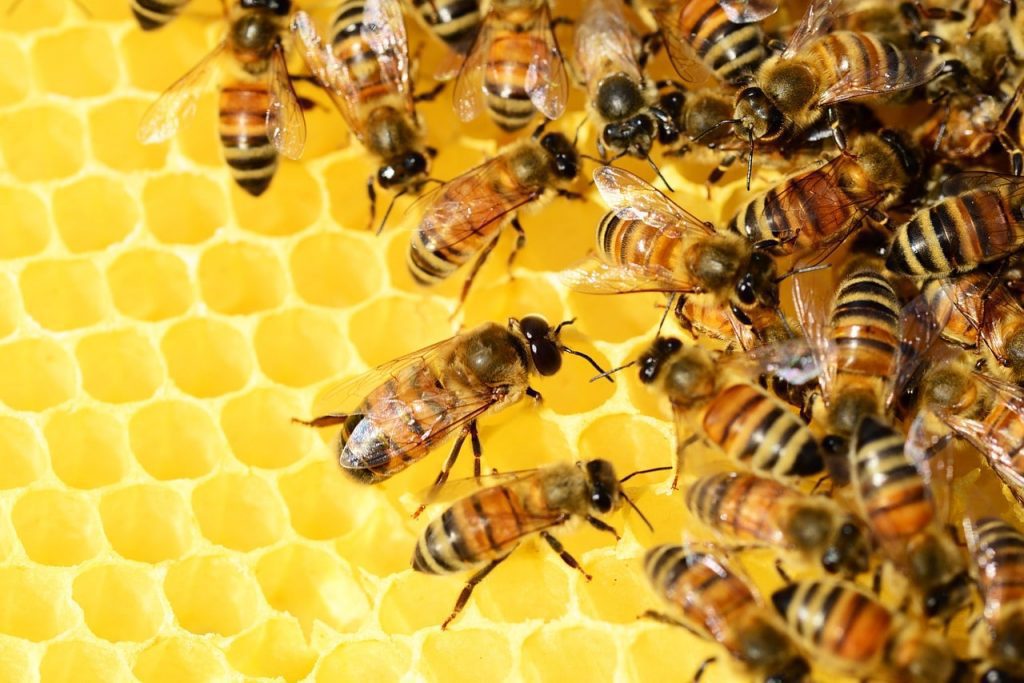Honey is a natural sweetening substance that can also be used as a substitute for other artificial or natural sweeteners. However, modern times, with all of its modern advancements, have come up with another substitute for honey that is honey itself but in a crystallized form. Commonly made from the premium quality honey, honey powder lacks the liquid quality of honey, which may make it easier to handle for some. Honey powder, unlike honey, can be used in a variety of dishes that are dry.
Related Reading:
Table of Contents
What Is Honey Powder?
Honey powder is just another sweet ingredient, which, just like honey, delivers a floral-nutty taste to the dish. It is dehydrated, granules of honey. Its smell, though low in strength, resembles that of liquid honey. In order words, it is nothing but dry honey.
The steps involved in the creation of honey powder involve drying. The first batch produced after the first drying, which results in large granulated particles, is known as honey crystals. Further drying and processing results in the production of minute particles resembling the texture of sand, and this is known as honey powder.
Also Read: 8 Natural Benefits Of Honey
The Whole Truth Whey Protein Concentrate Unflavoured |1 kg (2.2 lbs) | 26g Protein per scoop | 6.4g BCAA | 100% Authentic Whey & No Adulteration | Clean and Light | Muscle Building | Vegetarian

How to Dehydrate Honey and Make Honey Powder?
As we have established the fact that honey powder is nothing but dried honey, it is rather clear that the process of its preparation is quite easy to grasp. There are two major parts of its preparation process, the first one is the drying, and the next one is the grinding.
How to dehydrate honey powder?
Here is the whole overview of the process:
Step 1: Moisture Removal
- Firstly, the honey is spread onto a sheet and placed inside the food dehydrator, which helps in the removal of the moisture present in it.
Step 2: Heating Process
- After being carefully placed, it is heated at a low temperature, since heating it at higher temperature might cause it to burn. The perfect temperature for heating honey is around 49℃ (120F).
Step 3: Drying Process
- This process of drying honey at low temperature can take up to 24 hours (a whole day). And after the honey is dried, take out the tray and empty it into a food processor. Make sure that this transition is quick, since the dried honey can absorb moisture from the surroundings, thus resulting in a gooey texture that is harder to grind.
Step 4: Grinding It
- The last part of the process is the grinding part. Grind the dried honey in the food processor until it turns into a sand-like powder with minute particles. After which it must be emptied into a container and sealed perfectly.
Nutritional Facts of Honey Powder
Serving Size: 1 tsp
(Values based on a 2000 calorie diet)
Sr. No |
Parameters |
Value |
| 1. | Calories | 20 kcal |
| 2. | Total Fats | 0% |
| 3. | Cholesterol | 0% |
| 4. | Sodium | 0% |
| 5. | Potassium | 0% |
| 6. | Sugars | 2% |
| 7. | Protein | 0% |
(Source: Fitbit.com)
Benefits Of Honey Powder
- If it is stored perfectly in an airtight container, the lack of moisture can effectively increase the shelf life of honey powder. Thus, the shelf life of honey powder is far better than that of raw liquid honey.
- Apart from having a low glycaemic index, honey is loaded with minerals and vitamins, which also makes it a great sweetening alternative for sugar.
- Honey powder comes at a reasonable price. So, if you are looking for a sweetening alternative for costly ingredients, then this powder might just do the trick.
- Since it is powdered in form, its addition to the dish is more accurately handled as compared to raw honey. Moreover, it extends the list of meals in which honey can be added for flavoring.
Cons Of Honey Powder
- Its preparation, though quite simple, turns out to be hectic once you start it out. In depth knowledge of dehydration is required while performing the task; hence some of the honey powder found in the market might not be of top quality.
- Since it is present in a powdered state, it can easily be contaminated. This makes the search for pure honey powder that lacks artificial flavorings to be quite difficult. The other components such as sweeteners and sucrose are added to honey in order to prevent it from returning into its liquid state.
Final Words
We would like to conclude by saying that honey powder can indeed be your perfect sweetening agent, however, you must take into account its merits along with its demerits, as they might help you make a more decisive and informative choice regarding the ingredients you choose.












